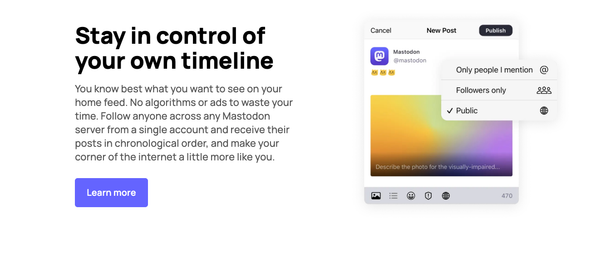macOS Might Have an Apps Problem in the World of Apple Intelligence
Apple has been pushing for the dominance of native apps on iOS, but macOS isn't quite the same—can it hold up in the world of Apple Intelligence?

With the push from Apple to adopt Apple Intelligence features ecosystem-wide, developers are going to have to figure out how to take advantage of these kinds of features on the Mac, and it’s not going to be super simple for all of them. You see, many apps run through what are called “web wrappers” and are essentially just a website “wrapped up” to look and feel like they’re a normal app. This allows developers to handle one codebase, but also take advantage of some of the features that are available on a native platform. But not all of them.
The Problem
So right off the bat, a large number of apps on macOS aren’t native, especially a lot of productivity apps like Discord, Slack, Gmail, Notion, and so on. These apps can either be used in the browser, or you can install their “web wrapper” version typically done through a piece of technology called Electron. These web apps are inherently limited when compared to native apps due to web browser limitations.
Apple Waged War on the Web
The iPhone was initially designed for web apps. There was no App Store at the time, everything was supposed to be run through the browser. Many apps actually do work this way, but they’re very limited. Because of Apple. In iPhoneOS 2, Apple added the App Store and pretty much just stopped iterating on the features available to developers and only recently making some of them available.
Since then, Apple’s pushed hard for native apps to be the mainstay on Apple’s platforms and forcing all app distribution through the App Store. This can be super convenient for many reasons: quality control through the App Review, making sure people can find all of the apps they want in one place, developers don’t have to handle distributing their app, which can become difficult, especially if an app sees a sudden spike in popularity. All of this stuff is now handled by Apple and is supposed to be a symbiotic relationship. In recent years, however, many developers have started pushing back against Apple, saying that the App Store is too restrictive for their liking and they charge too much through the 30% In-App Purchase fee that Apple levies (which drops to 15% if you have a subscription for longer than a year). This has pushed people to start considering alternative methods of deployment with the web being one of them.
Missing Web Features
Web apps are still relatively limited when compared to native apps, and it’s not really a technical problem, it’s more of a policy decision. Web apps should be able to send push notifications and do things like store data on-device, but these features have been limited over time by web browsers, especially on iOS where apps can’t even run on their own browser engines, effectively every browser on iOS is Safari with a differently-skinned interface. While this isn’t the case on macOS, web developers are going to be limited by the lowest common denominator. In the world of smartphones, it’s a lot of extra work to build around limitations on mobile that aren’t present on desktops (this is often why you get those “the experience is better on the app” popups when you visit, like, any website on the internet).
Where Am I Going With This?
Okay so if web apps are going to be limited relative to native apps, and many apps on macOS aren’t native, then we’ve got a bit of a problem. Kinda. It’s really going to depend on what features web wrappers like Electron will have access to, since they tend to have more access than straight up web apps running in a browser (enhanced notification capabilities, more audio routing options, even access to the menu bar). It is entirely possible that these wrapped apps will be able to take advantage of these features, but it’s also possible that they don’t. We don’t have a lot of the information about this since Apple Intelligence isn’t rolling out particularly quickly, but should these features not be available in web apps, that’s going to be a problem for a lot of productivity users-cases on the Mac.
Google Workspace, Notion, Slack, and more wouldn’t be able to take advantage of the Apple Intelligence features. While this may sound like an issue for them, it’s really more of an issue for Apple. If Google Workspace can’t hook into Siri on the Mac, then why should it on iPhone? You could just have your IT department use Gemini instead. Notion also offers their own Notion AI software subscription as well. If Apple doesn’t embrace these web APIs more robustly and extend them to potentially work at least in part with Apple Intelligence, that could mean a lot of people won’t be able to actually take advantage of their features.
Wrap-Up
While a lot is uncertain with this rollout of Apple Intelligence, Apple hasn’t been known to be web-friendly over the past, well, few decades. That being said, with regulations brewing in many different countries, this could be changing as time goes on. We’ll just have to wait and see what happens. Have any thoughts on what’s going to happen? Let me know here, on Mastodon, Bluesky, or on Threads.




